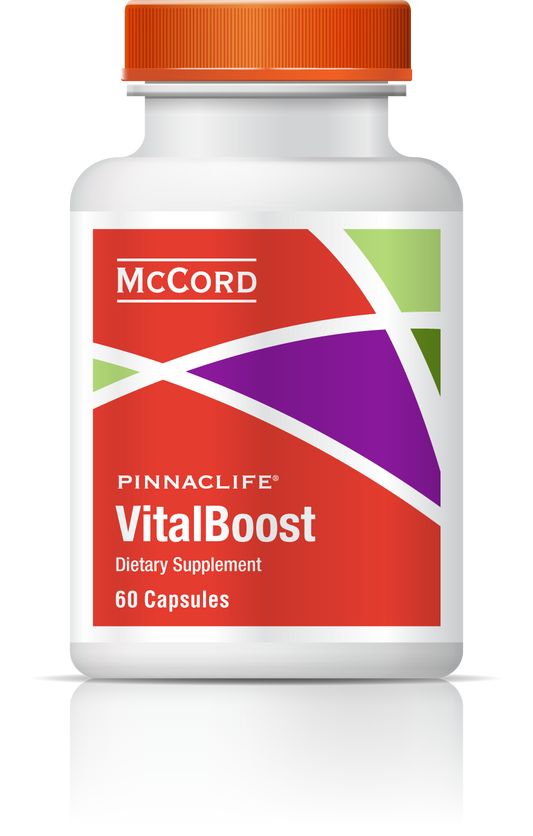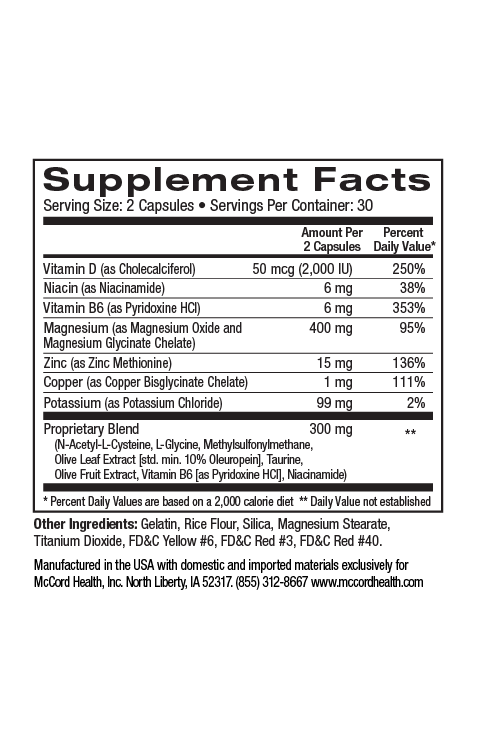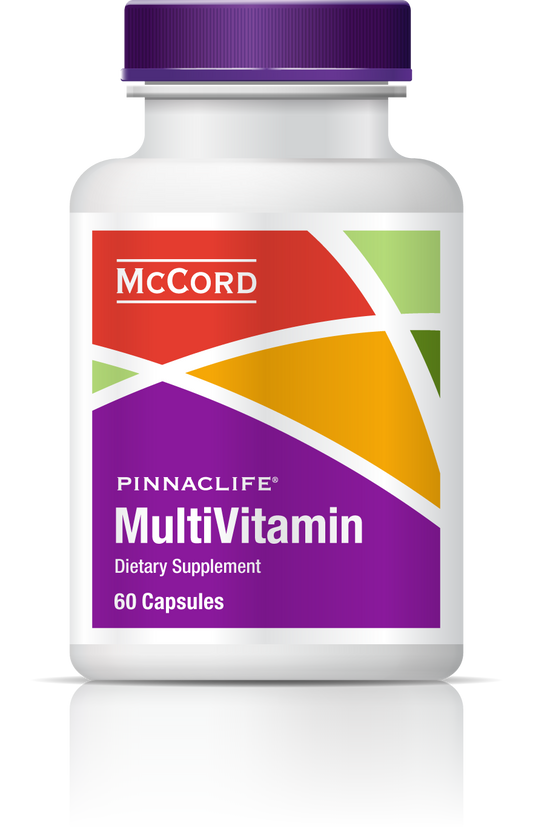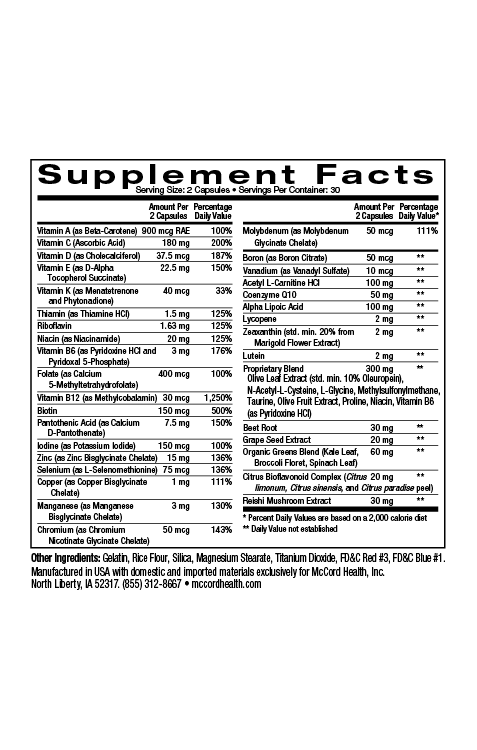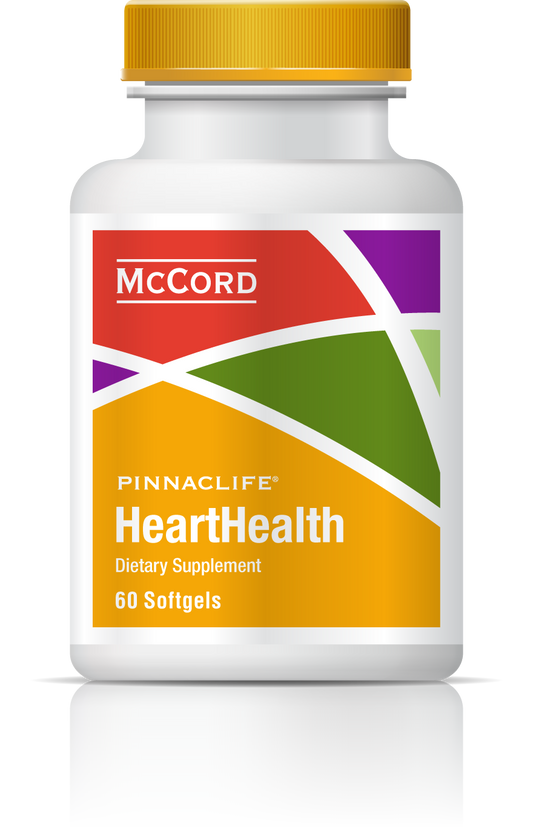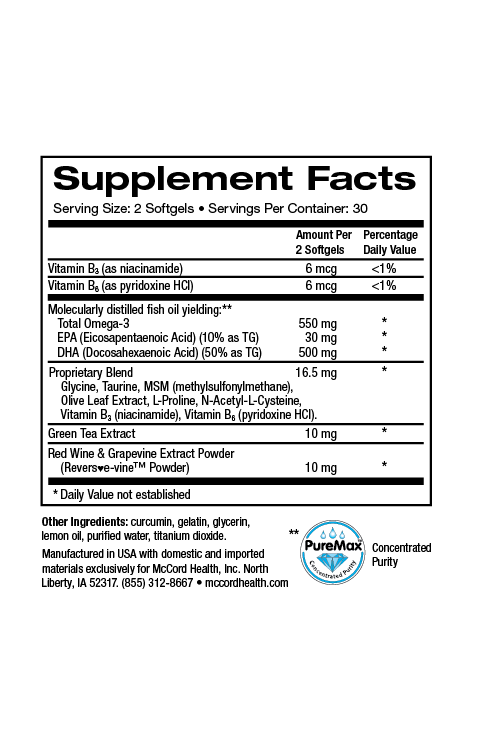Your heart works hard every day of your life and that requires adequate nutritional support to avoid cardiovascular disease, especially for people with diabetes. Nutrients like CoQ10, carnitine, magnesium, taurine, sulforaphane, olive extracts, and fiber all help support a healthy heart and circulatory system.
- Your heart works very hard every day of your life
- All of that hard work requires adequate nutritional support
- Without that support, your heart is at higher risk of disease
- People with diabetes are at especially high risk of heart disease
- Providing your heart with the proper nutrients can help lower your risk
- Your kidneys and heart work closely together, and typically what is good for your heart is also good for your kidneys
How Hard Does Your Heart Work?
Find a “squishy” object like a stress ball, an orange, or even a rolled up sock. As you read this, firmly squeeze the object in your hand about once every second (60 beats per minute).
See how long it takes before you notice a slight burning and increasing weakness in your hand and forearm as your muscles begin to fatigue.
Now imagine your hand is your heart, and consider how hard your heart is working every day of your life. If you had a constant heart rate of 75 beats per minute (average for adults) and you lived to be 80 years old, your heart will have beat more than 3.1 billion times. It works constantly to pump about 1.5 gallons of blood through the 60,000 miles of blood vessels that make up your circulatory system.
Sounds exhausting, doesn’t it?!
When you consider all the work that the heart is doing, it is easy to understand how important it is to maintain a healthy heart and circulatory system. This is especially true for people with diabetes because they have 2 to 4 times the risk of developing cardiovascular disease compared to somebody without diabetes.
In fact, heart disease is the primary cause of death in over 65% of people with diabetes according to the American Heart Association (AHA). The increased risk of heart disease is in people with diabetes is due to a variety of factors including:
- Weight
- Diet
- Physical inactivity
- Inflammation
- Oxidative stress
- High blood sugar
- High cholesterol(LDL/"Bad")
- High triglycerides
- High Blood pressure
- Kidney disease
- Smoking
- Genetics
Nutritional Support for a Healthy Heart
People with heart disease, or at risk of heart disease, are tasked with controlling these risk factors primarily through lifestyle changes and sometimes prescription medications. While there is no doubt that these things offer significant benefits, healthcare providers and people at risk for heart disease have been looking for more safe and easy ways to lower their risk.
Research is continually identifying key nutrients that can play an important role both in the treatment and prevention of heart disease and major risk factors like Type-II diabetes. Some of the promising foods and nutrients include:
Hydroxytyrosol (From Olives) for Heart Health
Hydroxytyrosol from olives has been shown to reverse chronic inflammation and oxidative stress that can put people at an increased risk of developing cardiovascular disease and metabolic syndrome from a high-carbohydrate and high-fat diet.1
Olive leaf extract was shown in studies to help improve vascular function and reduce inflammation and fibrosis in heart tissues, reduce left ventricle stiffness, and improve aortic reactivity, while also improving abdominal fat deposition, plasma triglycerides, total cholesterol, glucose tolerance, and insulin sensitivity.1,2 While hydroxytyrosol-containing olive leaf extract is found in all McCord Health supplements, the highest amount is provided in ImmuneHealth.
Acetylcysteine and Taurine for Heart Health
The combination of acetylcysteine (NAC) and taurine has been shown to prevent hyperglycemia-induced insulin resistance – one of the primary mechanisms behind type-II diabetes and a major risk factor of heart disease.3 NAC and Taurine are essential ingredients in the Proprietary Blend formula, therefore in all McCord Health supplements. The highest does of NAC is provided in ImmuneHealth while both Brain Health and EnergyBoost provide over 100 mg of taurine per serving.
Coenzyme Q10 (CoQ10) for Heart Health
CoQ10 is one of the most important molecules for healthy metabolism because it has a key role in the processes that convert sugar into usable energy.4 The highest concentrations of CoQ10 are found in vital organs with high metabolic demands including the heart, liver, brain, kidneys, retinas, and skeletal muscle.4 You might notice these are the same tissues most affected by complications of diabetes.
There are several drugs that can deplete your body’s naturally produced CoQ10, and some that even inhibit your ability to produce it such as the cholesterol lowering “statin drugs” that are recommended for use in individuals with high cholesterol and/or diabetes.5 Depletion of CoQ10 results in oxidative stress and malfunctioning mitochondria, causing cell death and significant damage to the organs that require CoQ10 the most.4,6 The McCord Health MultiVitamin provides 50 mg of CoQ10 per serving.
Acetyl-L-Carnitine for Heart Health
Carnitine has been shown to reduce cardiovascular risk factors in people with diabetes by reducing arterial blood pressure, insulin resistance, impaired glucose tolerance, and hypoadiponectinemia.7 The McCord Health MultiVitamin provides 100 mg of Acetyl-L-Carnitine per serving.
Magnesium for Heart Health
Magnesium is known to reduce blood pressure by helping blood vessels to relax and dilate. It is also essential for regulating the heart rhythm. For these reasons, magnesium can play an important role in preventing certain heart conditions and stroke, while preventing other effects from elevated blood pressure such as kidney disease and retinopathy.8–10 Magnesium is provided by several McCord Health supplements including VitalBoost, SleepHealth, CalmMind, and BrainHealth.
Sulforaphane for Heart Health
Broccoli contains a potent antioxidant called sulforaphane that has been shown to improve cardiac health by preventing and even reversing diabetes-induced aortic fibrosis, inflammation, and oxidative stress.11 Studies have also shown that sulforaphane may also prevent diabetes-induced hypertension, heart dysfunction, cardiac hypertrophy, fibrosis, and cardiomyopathy.12 Sulforaphane-containing broccoli extract is provided in BrainHealth and JointHealth supplements.
Omega-3's / Fish Oil for Heart Health
Omega-3 essential fatty acids have been shown to have favorable effects on blood lipids, especially triglycerides.13 The American Heart Association recommends consuming foods rich in omega-3 essential fatty acids and supports the use of omega-3 supplementation to increase the daily intake, however it is not recommended to exceed 3 grams of fish oil per day without proper medical supervision as it can slow blood clotting time, especially if you are taking blood thinning medications.14 McCord Health HeartHealth Supplement is an excellent way to increase your daily intake of heart-healthy Omega-3 fatty acids.
L-taurine and B Vitamins for Heart Health
Taurine is an amino acid that has been shown to protect the heart from elevated levels of homocysteine.15,16 Homocysteine is a molecule found in the blood that is associated with increased risk of heart disease.
Elevated levels are caused by increased oxidative stress and malfunctions in certain metabolic pathways that rely on nutrients like Vitamin B12, folate, Vitamin B3 (niacin), and Vitamin B6 (pyridoxine).
Supplementation with these vitamins has been shown to lower levels of homocysteine, reducing the risk of cardiovascular death.17–19
Dietary Fiber for Heart Health
High fiber diets in general have a strong correlation with improved heart health.23,24 Proprietary Blend DigestiveHealth uses a form of fiber shown to help lower blood glucose and triglyceride levels following meals while also promoting beneficial bacteria that can help reduce inflammation and reduce some of the risk factors for obesity, metabolic syndrome, heart disease, and diabetes.25–27 Maintaining healthy blood levels of glucose, triglycerides, and cholesterol are all associated with improved cardiovascular health and lower risk of heart disease.
Fiber and magnesium have been shown to help reduce levels of an indicator of excess inflammation throughout the body called C-Reactive Protein (CRP).21,22 Elevated CRP levels are associated with increased risk of heart disease.20
Heart Disease and Kidney Health
The kidneys work very closely with the heart and it turns out that most of the things you do to protect your heart will also help protect your kidneys. The kidneys are filled with blood vessels because they function as a filter to keep an even balance of water and electrolytes like sodium, magnesium, potassium, and chloride in the blood.
The same nutrients that protect your blood vessels and heart from damage will help to protect the kidneys and the blood vessels within the kidneys. Keeping your blood pressure, cholesterol, blood sugar, and inflammation markers like homocysteine and CRP under control are all important ways to help protect your kidneys from disease.
Kidney failure is a major complication of diabetes and about 44% of all new cases of kidney failure are caused by diabetes.28 Every year, almost 50,000 Americans will start treatment for kidney disease as a result of their diabetes.28
Best Supplements to Support a Healthy Heart
As outlined above, many of the McCord Health Proprietary Blend Supplements contain heart-healthy nutrients that you may want to consider supplementing. Our recommendation would be to start with our essential supplements including ImmuneHealth, VitalBoost, MultiVitamin, and DigestiveHealth Prebiotic Fiber, plus the HeartHealth Omega-3 fish oil supplement. Be sure to discuss any supplement use with your personal doctor, pharmacist, and/or trusted healthcare provider especially if you are using prescription medications or have been diagnosed with any conditions.
References
- Poudyal H, Campbell F, Brown L. Olive leaf extract attenuates cardiac, hepatic, and metabolic changes in high carbohydrate-, high fat-fed rats. J Nutr. 2010;140(5):946-953.
- de Bock M, Derraik JGB, Brennan CM, et al. Olive (Olea europaea L.) leaf polyphenols improve insulin sensitivity in middle-aged overweight men: a randomized, placebo-controlled, crossover trial. PLoS One. 2013;8(3):e57622.
- Haber CA, Lam TKT, Yu Z, et al. N-acetylcysteine and taurine prevent hyperglycemia-induced insulin resistance in vivo: possible role of oxidative stress. Am J Physiol Endocrinol Metab. 2003;285:E744-E753.
- Littarru GP, Tiano L. Clinical aspects of coenzyme Q10: an update. Nutrition. 2010;26(3):250-254.
- Rundek T, Naini A, Sacco R, Coates K, DiMauro S. Atorvastatin decreases the coenzyme Q10 level in the blood of patients at risk for cardiovascular disease and stroke. Arch Neurol. 2004;61(6):889-892.
- Kumar A, Kaur H, Devi P, Mohan V. Role of coenzyme Q10 (CoQ10) in cardiac disease, hypertension and Meniere-like syndrome. Pharmacol Ther. 2009;124(3):259-268.
- Ruggenenti P, Cattaneo D, Loriga G, et al. Ameliorating hypertension and insulin resistance in subjects at increased cardiovascular risk: effects of acetyl-L-carnitine therapy. Hypertension. 2009;54(3):567-574.
- Abbott R. Dietary magnesium intake and the future risk of coronary heart disease (The Honolulu Heart Program). Am J Cardiol. 2003;92(6):665-669.
- Al-Delaimy WK, Rimm EB, Willett WC, Stampfer MJ, Hu FB. Magnesium intake and risk of coronary heart disease among men. J Am Coll Nutr. 2004;23(1):63-70.
- Johnson S. The multifaceted and widespread pathology of magnesium deficiency. Med Hypotheses. 2001;56(2):163-170.
- Wang Y, Zhang Z, Sun W, et al. Sulforaphane attenuation of type 2 diabetes-induced aortic damage was associated with the upregulation of Nrf2 expression and function. Oxid Med Cell Longev. 2014;2014:1-11.
- Bai Y, Cui W, Xin Y, et al. Prevention by sulforaphane of diabetic cardiomyopathy is associated with up-regulation of Nrf2 expression and transcription activation. J Mol Cell Cardiol. 2013;57:82-95.
- Cylla E Friedburg, MD, Robert J. Heine PhD, MD, Martien J F.M. Janssen, PhD, MD, Diederick E. Grobbee, PhD M. Fish Oil and Glycemic Control in Diabetes. Diabetes Care. 1998;21(4).
- Kris-Etherton PM. Omega-3 Fatty Acids and Cardiovascular Disease: New Recommendations From the American Heart Association. Arterioscler Thromb Vasc Biol. 2003;23(2):151-152.
- Chang L, Xu J, Yu F, Zhao J, Tang X, Tang C. Taurine protected myocardial mitochondria injury induced by hyperhomocysteinemia in rats. Amino Acids. 2004;27(1):37-48.
- Nonaka H, Tsujino T, Watari Y, Emoto N, Yokoyama M. Taurine Prevents the Decrease in Expression and Secretion of Extracellular Superoxide Dismutase Induced by Homocysteine: Amelioration of Homocysteine-Induced Endoplasmic Reticulum Stress by Taurine. Circulation. 2001;104(10):1165-1170.
- Fairfield KM, Fletcher RH. Vitamins for chronic disease prevention in adults: scientific review. Jama J Am Med Assoc. 2002;287(23):3116-3126.
- Mirmiran P, Bahadoran Z, Azizi F. Functional foods-based diet as a novel dietary approach for management of type 2 diabetes and its complications: A review. World J Diabetes. 2014;5(3):267-281.
- Dell’edera D, Tinelli A, Milazzo GN, et al. Effect of multivitamins on plasma homocysteine in patients with the 5,10 methylenetetrahydrofolate reductase C677T homozygous state. Mol Med Rep. 2013;8(2):609-612.
- Ridker PM, Rifai N, Rose L, Buring JE, Cook NR. Comparison of C-reactive protein and low-density lipoprotein cholesterol levels in the prediction of first cardiovascular events. N Engl J Med. 2002;347(20):1557-1565.
- Song Y, Ridker PM, Manson JE, Cook NR, Buring JE, Liu S. Magnesium intake, C-reactive protein, and the prevalence of metabolic syndrome in middle-aged and older U.S. women. Diabetes Care. 2005;28(6):1438-1444.
- King D, Mainousiii a, Geesey M, Egan B, Rehman S. Magnesium supplement intake and C-reactive protein levels in adults. Nutr Res. 2006;26(5):193-196.
- Pereira MA, Reilly EO, Augustsson K, et al. Dietary Fiber and Risk of Coronary Heart Disease: a pooled analysis of cohort studies. Arch Intern Med. 2004;164:370-376.
- Streppel MT, Ocké MC, Boshuizen HC, Kok FJ, Kromhout D. Dietary fiber intake in relation to coronary heart disease and all-cause mortality over 40 y: the Zutphen Study. Am J Clin Nutr. 2008;88(4):1119-1125.
- Kishimoto Y, Oga H, Tagami H, Okuma K, Gordon DT. Suppressive effect of resistant maltodextrin on postprandial blood triacylglycerol elevation. Eur J Nutr. 2007;46(3):133-138.
- Galisteo M, Duarte J, Zarzuelo A. Effects of dietary fibers on disturbances clustered in the metabolic syndrome. J Nutr Biochem. 2008;19(2):71-84.
- Conterno L, Fava F, Viola R, Tuohy KM. Obesity and the gut microbiota: does up-regulating colonic fermentation protect against obesity and metabolic disease? Genes Nutr. 2011;6(3):241-260.
- American Diabetes Association. Fast Facts: Data and statistics about diabetes. Online Publ. 2014:1-2. http://professional.diabetes.org/admin/UserFiles/0 - Sean/14_fast_facts_june2014_final3.pdf
Disclaimer: These statements have not been reviewed by the FDA. These products are dietary supplements and are not intended to treat, cure, or prevent any disease. The decision to use these products should be discussed with a trusted healthcare provider. The authors and the publisher of this work have made every effort to use sources believed to be reliable to provide information that is accurate and compatible with the standards generally accepted at the time of publication. The authors and the publisher shall not be liable for any special, consequential, or exemplary damages resulting, in whole or in part, from the readers’ use of, or reliance on, the information contained in this article. The publisher has no responsibility for the persistence or accuracy of URLs for external or third party Internet websites referred to in this publication and does not guarantee that any content on such websites is, or will remain, accurate or appropriate.

